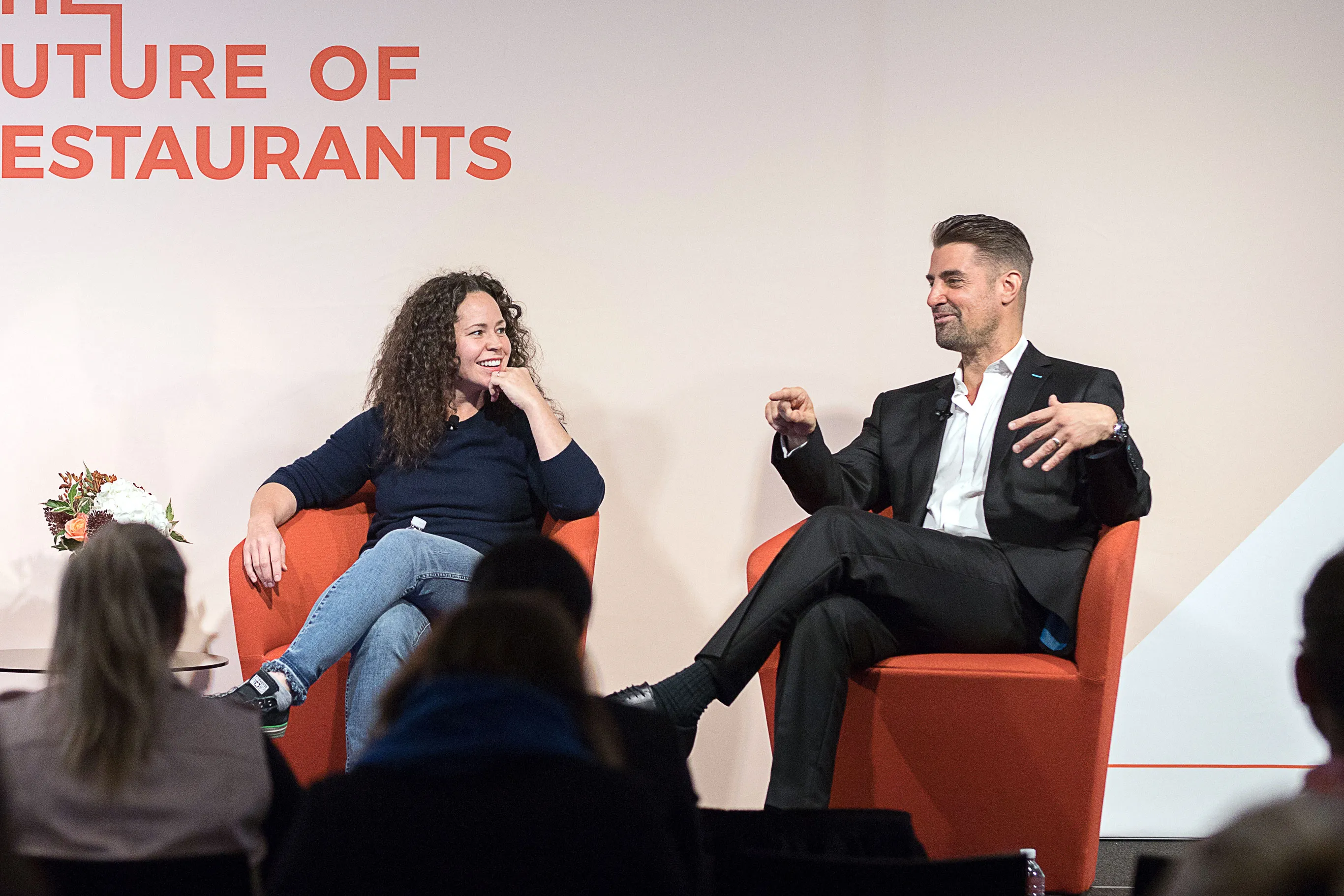Inside Girl & The Goat’s Successful Chef-Restaurateur Partnership

Photo Credit: Chef Stephanie Izard and Kevin Boehm, co-founder of Boka Restaurant Group, at Skift Restaurants Forum. Skift Table / Dan Loh
Skift Take
Restaurateur Kevin Boehm and chef Stephanie Izard clearly get on very well, and seem to have a great understanding about how to get the best out of one another.


